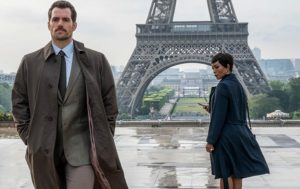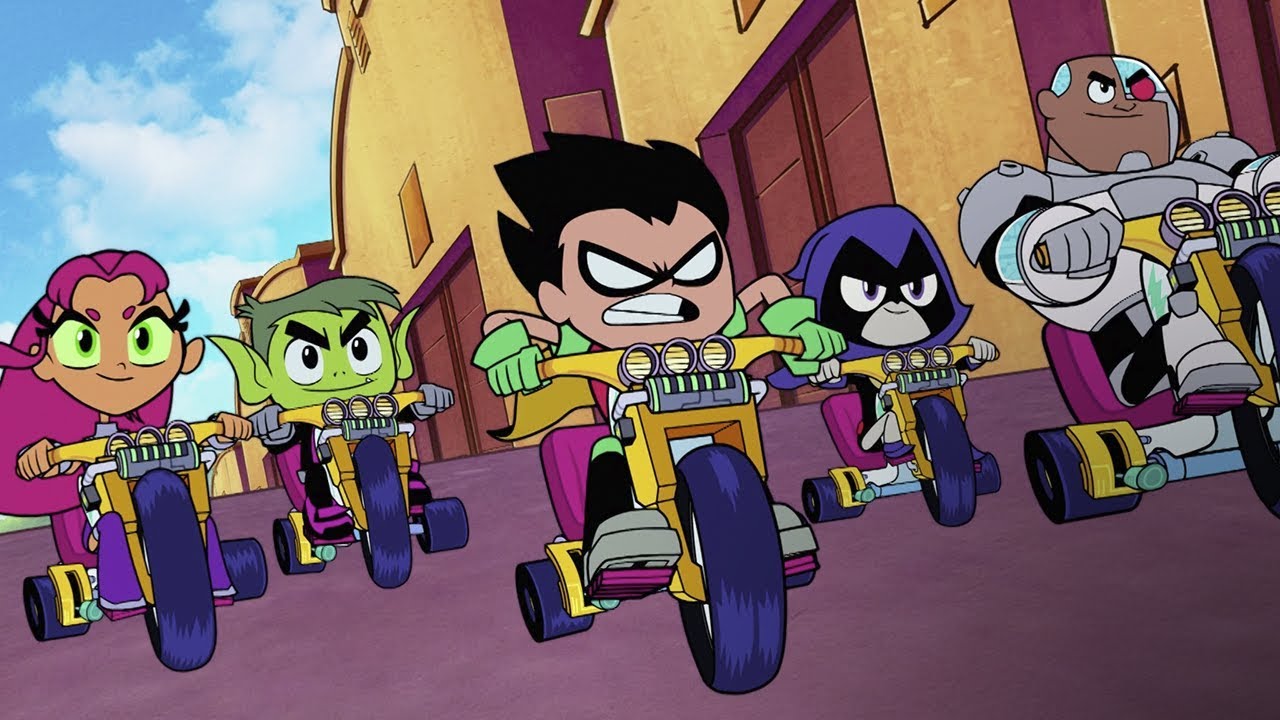 It’s true what they say about Mission: Impossible – Fallout. It really is one of the most impressive action films we’ve gotten in a while. While it may not exercise quite as much cleverness or deliver the same punchy twists as the series’ first outing (the 1996 Mission: Impossible is still one of my favorite films), what it does serve up is some bonkers action and truly death-defying stunt work in a surprising white-knuckle thrill ride.
It’s true what they say about Mission: Impossible – Fallout. It really is one of the most impressive action films we’ve gotten in a while. While it may not exercise quite as much cleverness or deliver the same punchy twists as the series’ first outing (the 1996 Mission: Impossible is still one of my favorite films), what it does serve up is some bonkers action and truly death-defying stunt work in a surprising white-knuckle thrill ride.
Picking up where 2015’s Rogue Nation left off, Fallout wastes no time giving us a concise but thorough rundown of who and what the major pieces of the film are, via the inevitable, now-memetic “your mission, should you choose to accept it” scene. For this reason, you don’t need to remember (or even need to have seen) all of the preceding films to understand this one.
The plot starts out pretty simple: Ethan Hunt (the American James Bond) and his IMF team fail to recover some plutonium that a group of radicals known as “The Apostles” intend to use to build nuclear bombs. It’s up to Hunt’s team to find the plutonium, prevent The Apostles from using them, and basically save the world.
But from there, the film takes off like a careening helicopter, leaving us to hang on by a rope underneath, desperately clinging to the plot as it leaves the ground. The pace is exhilarating, taking us from stunt to stunt without it feeling either disjointed or too slow.
 And what stunts they are. Instead of one or two major set pieces, we get five, each one more bonkers than the previous. Individually, any of the five would be the big climactic moment of another film; but together, the result is thrilling. Each stunt felt real, grounded largely by the fact that they actually were.
And what stunts they are. Instead of one or two major set pieces, we get five, each one more bonkers than the previous. Individually, any of the five would be the big climactic moment of another film; but together, the result is thrilling. Each stunt felt real, grounded largely by the fact that they actually were.
It’s not perfect, of course. Henry Cavill basically portrays “brooding Superman,” there are a couple of dramatic entrances (on screen and in dialogue) that don’t land if it’s been a while since you saw Fallout’s predecessor.
But even if your previous experience with the franchise is only the pop cultural consciousness of masks, subterfuge, and “this message will self-destruct,” I think you’d enjoy the film. And while it doesn’t have the most philosophical depth we’ve ever seen, it still has quite a bit to say.
Spoilers will not self-destruct below. Be on your guard.
The entire Mission: Impossible film franchise is about masks. So much so that a supercut of just people ripping masks off their faces was over six minutes long – BEFORE the release of Fallout! When you sit down to watch one of Ethan Hunt’s adventures, in addition to incredible stunts, you know you’re about to see lots of double-crossing, deception, and fakery.
That’s interesting to watch as a Christian in the modern age. So much of modern life revolves around masks of various types: putting them on, seeing them on others, pulling them off in intimate situations, even pushing others to wear them because we don’t like who they really are. Lane even spells it out to Ethan in his dream: he can never be his true self, even in front of his wife.
 For people who are called to be authentic, honest, and distinct from the world, this can either be disturbing–or it can be a powerful opportunity.
For people who are called to be authentic, honest, and distinct from the world, this can either be disturbing–or it can be a powerful opportunity.
In Ethan’s world as in our own, there’s a real concern about having the right mask on at the right time. About not being seen as the wrong person. And in a world like that, it’s a great comfort to know that you are who you’re supposed to be.
And therein lies our opportunity. As a Christian, we can know without a doubt who we are and what we’re supposed to do. And it’s not even that tough: it’s spelled out in thirteen words.
“He has told you, O man, what is good; and what does the LORD require of you but to do justice, and to love kindness, and to walk humbly with your God?” – Micah 6:8, ESV
We’re people of God, given over to Him totally; and our task is to be just, kind, and humble before God. It’s a freeing face to remove a mask from.
It’s interesting to be talking about religion with regard to this movie, too; because, while the theology and philosophy may not be pooling on the surface, it only takes a quick glance to see more clearly: the trappings of religion are the villain’s target, and the language of religion is his plan.
The holy cities of the world’s major Abrahamic religions are mentioned in the IMF’s first fakeout, as they trick a hostage into revealing information. And while Christians don’t believe any city is more particularly holy than any other, the choice was clearly made to evoke a connection to faith. Even once the final plan is revealed, the target is an aid camp in Kashmir; medical aid being a traditionally religious outreach arm.
 I don’t think the movie is specifically targeting religion. But I think the villain is.
I don’t think the movie is specifically targeting religion. But I think the villain is.
And the words he uses in his “manifesto” make that all the clearer. “There cannot be peace without a great suffering,” he says. “The greater the suffering, the greater the peace.”
My faith insists that everyone has sinned, and lives in conflict with God. We live in danger, staring at an armed bomb with no hope of ever finding the detonator. Like Ethan and his team, it’s our fault; our conflict with God came from our sin, and it has come to a head. There is no hope for peace; only destruction.
And yet, into this terror comes a man whom Biblical tradition has called the suffering servant: “he was pierced because of our rebellion, crushed because of our iniquities; punishment [suffering] for our peace was on him, and we are healed by his wounds.” -Isaiah 53:5, CSB
That suffering servant is a prophecy, told centuries earlier, of the work of Jesus. And while Ethan Hunt is far from a perfect analog of Jesus, his repeated falls, fights, vehicle crashes, cuts, bruises, drops off of sheer ledges, and near-death experiences (and all of these in only the last five minutes of the film!) do show a light reflection of the suffering Jesus—the Son of God—went through for us. To save us, He put himself into our conflict and took it all.
So, in fact, Solomon Lane got it right; there cannot be peace without suffering. The greater the suffering, the greater the peace.
And an infinite suffering, poured upon God Himself, brings an eternal peace for all of His people.



1 comment